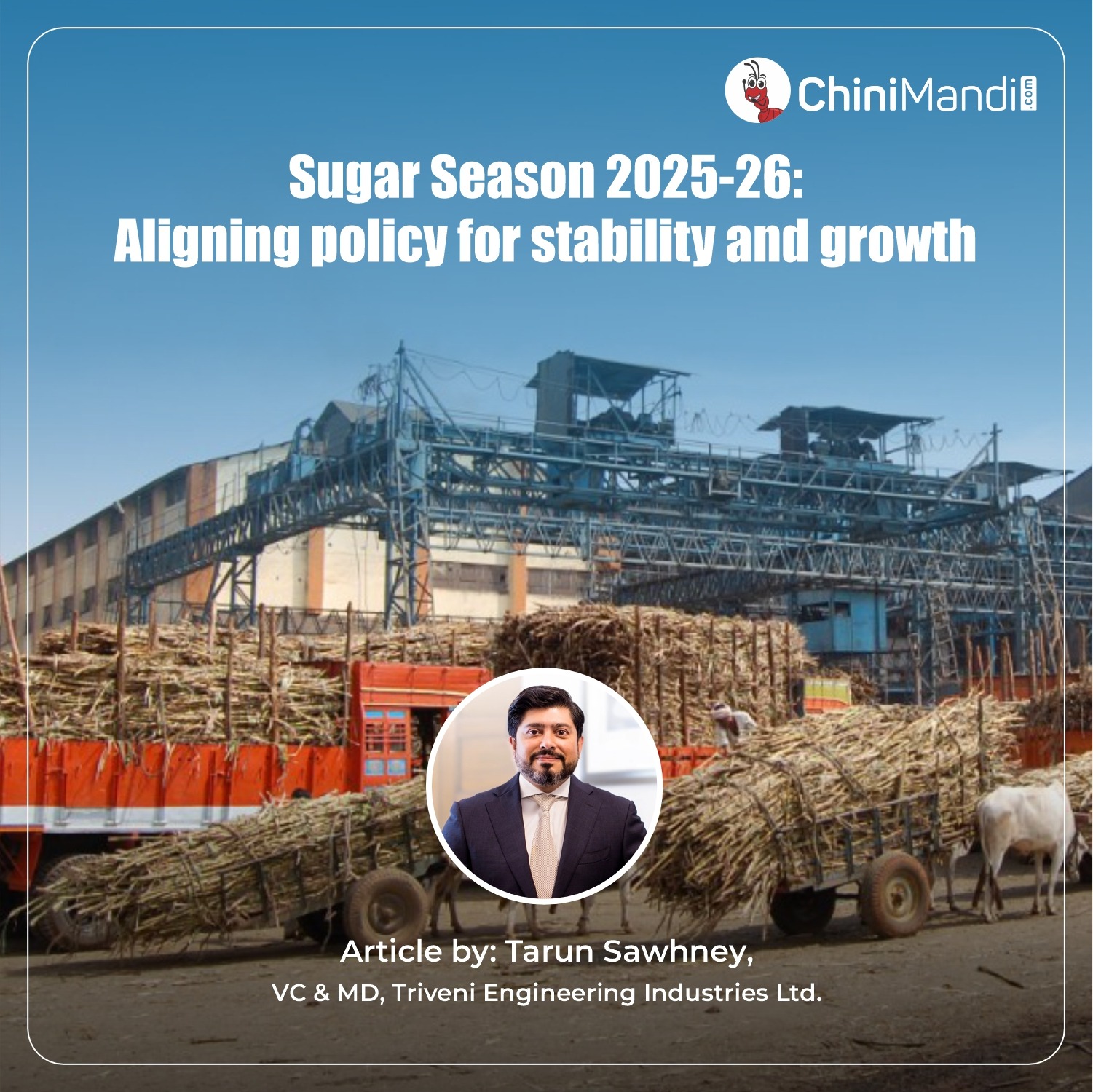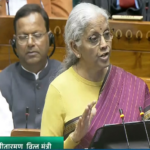As India enters the 2025-26 sugar season, the industry stands at an important policy juncture. With production set to rise sharply, ethanol blending expanding, and farmers’ incomes linked directly to cane pricing, the sector is seeking a more aligned framework that balances sustainability with competitiveness. Three areas – ethanol pricing, sugar’s Minimum Selling Price (MSP) linkage to the Fair and Remunerative Price (FRP) / State Advised Prices (SAP), and export clarity, are where timely reforms could make the difference between another surplus cycle and a season of balanced growth.
Ethanol Pricing: Linking Cost with Incentives
India’s ethanol program is crucial for its energy transition; however, sugar mills have pointed out that the lack of adjustment in procurement prices—despite rising input costs—has significantly affected the profitability of sugarcane-based distilleries. This decline in profitability, coupled with higher procurement prices for grain-based ethanol, has led to a reduction in sugarcane’s contribution to ethanol blending, decreasing from 73% in 2022-23 to just 28% in 2024-25.
Rather than seeing this as a setback, the solution lies in making ethanol pricing more formula driven. If procurement prices are linked to FRP / SAP, feedstock recovery, and energy costs, mills will be assured of viability. This alignment would encourage greater diversion of sugar to ethanol, reduce excess stocks, and strengthen India’s journey of Ethanol blending.
MSP and FRP: Ensuring Balanced Returns
While farmers are assured of better returns through the FRP increase to ₹355 per quintal this season, the MSP of sugar has remained unchanged at ₹31 per kg since 2019. Mills argue that their cost of production, given the higher FRP / SAP, has increased significantly, impacting the profitability of the mills. The mismatch creates pressure on mills’ margins and risks delaying cane payments to farmers.
The solution is not a one-off price hike but a system of automatic linkage. If MSP were tied to FRP, with a built-in margin above production costs, both mills and farmers would gain predictability. Industry estimates suggest a fair MSP band of ₹36–40 per kg, which would keep mills profitable while protecting farmer incomes. Linking MSP to FRP would also reduce the need for repeated interventions, making policy more transparent and forward-looking.
Exports: Stability Through Early Decisions
India’s sugar output is expected to touch 34.9 million tonnes in 2025-26, nearly 18% higher than the previous year. With domestic consumption steady at around 28 million tonnes, this creates a clear surplus. The industry has recommended that the government permit exports of 2 million tonnes, in addition to 5 million tonnes being diverted for ethanol.
Delaying export permissions risks stock build-up and depressed domestic prices. A more effective approach is early policy announcement, allowing mills to secure forward contracts and capture favourable prices in global markets. A structured export framework, announced at the start of the season would balance domestic supply with international opportunities, stabilising prices and ensuring cash flow for timely farmer payments.
Building a Predictable Framework
The three issues including ethanol pricing, MSP linkage, and exports are not isolated but interdependent. Low ethanol pricing discourages diversion, which adds to sugar stocks; stagnant MSP of sugar erodes mill margins; and delayed export permissions create volatility. Conversely, aligning these levers can create a virtuous cycle. Predictable ethanol returns reduce surplus, MSP-FRP linkage secures farmer payments, and timely exports maintain domestic price balance.
The government has already taken constructive steps, such as allowing unrestricted ethanol production from cane juice, syrup, and molasses for 2025-26 (Reuters). Extending this spirit of clarity to pricing and exports will ensure that India’s sugar sector not only avoids periodic cycles of surplus stress but also strengthens its role in the green economy.
Overall, India’s sugar industry is no longer just about producing sweeteners; it is a linchpin for biofuels, energy security, and rural prosperity. By taking timely steps, policymakers can ensure the sector’s stability while accelerating its transformation into a bioenergy powerhouse.
Mr. Tarun Sawhney is the Vice Chairman and Managing Director at Triveni Engineering & Industries Ltd.















